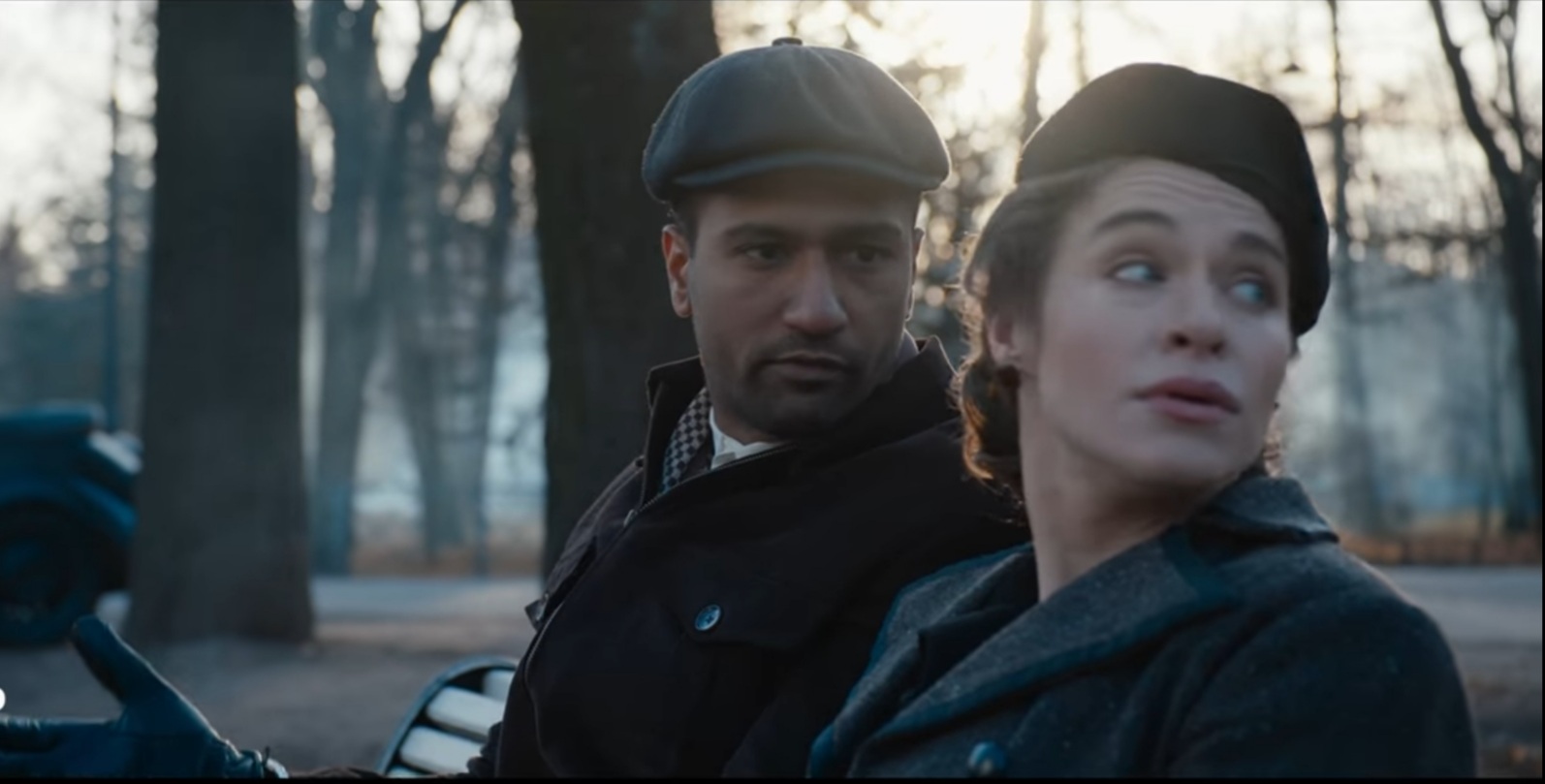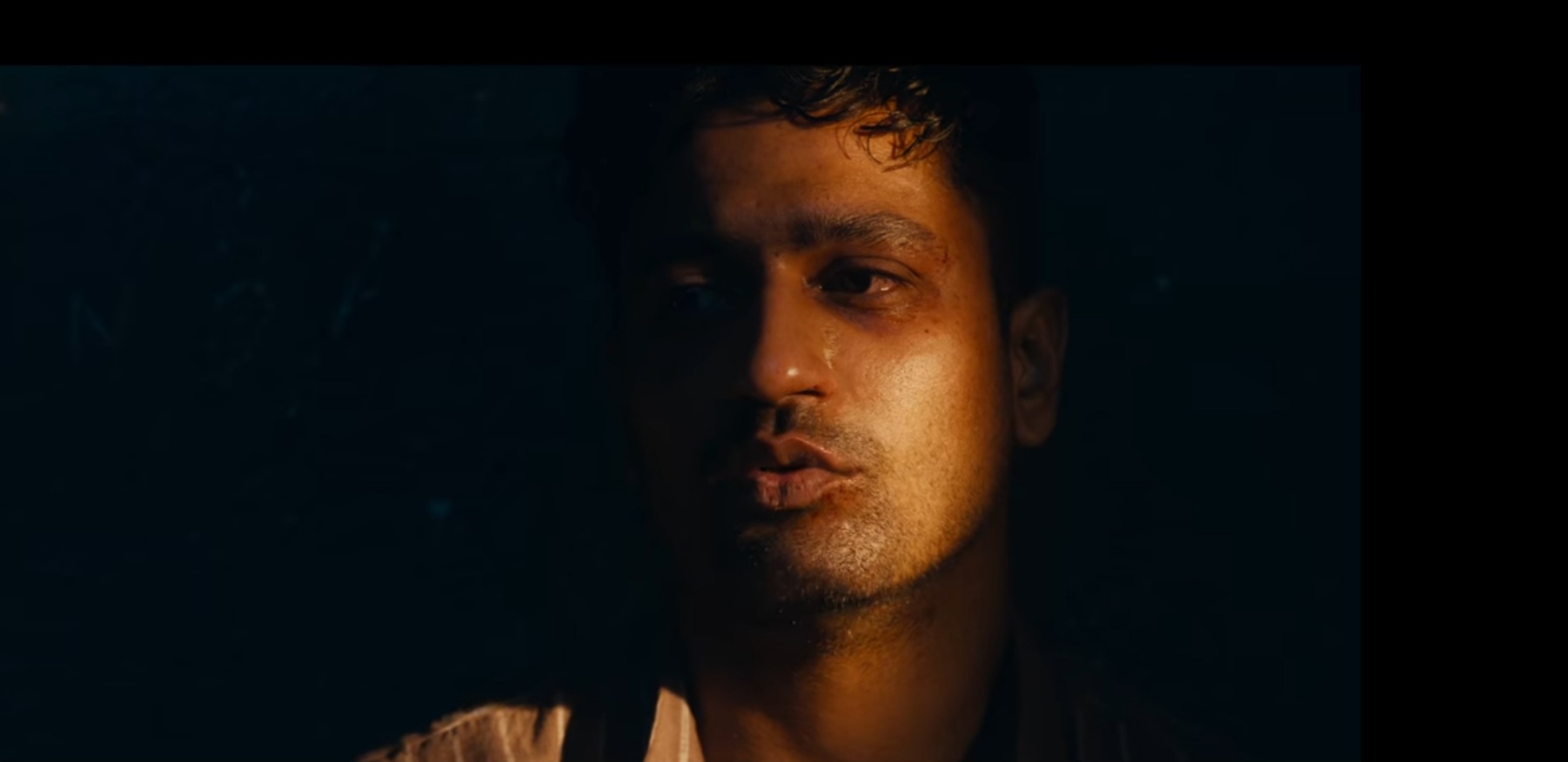Taste and skill develop at varied paces. The former can be acquired. The latter has to be gained through penance and constant practice. Sardar Udham is a film of fine taste, hands down. But the skills are a veil rather than a storytelling microscope.
The film is a departure from the archetype freedom fighter/patriotic film formulae, which is a respite. But the construct of it devises or rather leans on a method of its own.
The central character of Sardar Udham is the mood plan of its universe. Cold and gloomy like a Blackpool winter dusk, the story uncoils with Udham Singh walk out serving his jail sentence into a world that’s in shreds and still fuming with the smoke of past flames.
The origins aren’t met with a head start but a tale spin where the narrative oscillates between the aftermath and establishment of the Jallianwala Bagh massacre.
Shoojit Sircar and his writers Shubhendu and Riteish Shah invest runtime in ovulating the protagonist’s voyage from plight to vengeance, through slow burning, stoic moments sufficiently gruelling to affect the most hardened of us. The problem being, nuances are sporadically riveting and mostly draggy.
In this nonlinear uncovering, the issuance of the conflict takes backseat while the viewer is consumed by a memoir of character development. For seemingly, the makers are slated to redeem the character’s emotional journey at the culmination and not retrospect of the travails of collective grief spurred by the satanic blood bath.
About halfway through the film, the writing appears empty or rather unavailable to holistic objectivity of the story.

Sardar Udham isn’t a bad film. It’s a stellar piece of work. But the restricted expression is glaring.
The story is aware of the current socio-political status of the country. The creators seem to have wilfully taken away a chunk of the perspective.
It doesn’t have much to say besides the fact that it views Sardar Udham Singh as a revolutionary. But fails to tap into the making of that revolutionary.
And, I don’t blame the makers either. The film dabbles with the obvious compulsion of free will and speech but ironically practices the exact same indictment it loathes.
The seed of Sardar Udham’s revolution wasn’t vengeance. It was political consciousness. The freedom to think and express. The film never confronts the colonial mind-set of weaponing fear. It wasn’t imperialism that enslaved our nation. It was fear, inflicted methodically, through caste system and class divide.
To understand this facet, one has to browse through the Sepoy Mutiny of 1857, which the film addresses in bylines and whispers. Mangal Pandey, Rani Laxmibhai, Bahadur Shah II were some of the leaders of that revolt. A rebellion that made the Brits realise India’s power sanctum; it’s religious unity. To dissect which, the colonials piped in an effective policy on their part – Divide and Rule.
This whole ordeal is palpable but passable in this film. When Udham Singh oaths upon Heer Ranjha and reintroduces himself as Ram Mohammad Singh Azad, it’s a symbolic overtone of the realms the film desired to achieve but couldn’t, courtesy predominant political divide and trivialised bigotry.
While the film gets the morality on point by exclaiming the sensibility of separating an evil and his community or nation and the difference between hating someone and still being in parity with the rest of his community, the voice of the telling lacks zeal in narrative points warranting depth and gall. Sad, that speaking your mind has to be considered audacious in a free world.

The film is cut above the rest and will be remembered as one of the finest products of Hindi cinema but it isn’t a masterpiece. It refrains from studying the reasons behind Udham Singh’s scorn. Absolutely failing to comprehend his trauma, it doesn’t address what PTSD could do a person and to what extents.
A young Ambarsariya lad who’s never killed a fly goes onto assassinate the prime oppressor in public. That tells a lot about the mental state of a pained human being. Someone who’s lost his dear friends and family in most demonic act of oppression in history. It’s also a fashionable trait of us, the moden Indians who go amiss at comprehending our history.
We see the valour in our heroes but tend to let pass of the vindication they had to undego. Most of our leaders and revolutionaries of Sardar Udham Singh’s credence were broken people trying to fix a world for the future to exist in peace and prosperity. Their fight was a cause, backed by an ideology of equality and not exactly vengeance.
Did they plan to kill anyone in the process? I bet not. But the constant attack on psyche and sense led to a succession of traumatic events which made them snap.
They weren’t killers or murderers. They were depressed people who resorted to violence as nothing else worked in that phase of white dominion. That’s their context. Killing isn’t a justifiable act. Else, one day someone who’d walk up and make a film glorifying Nathuram Godse killing Mohandas. K. Gandhi. Godse wasn’t a revolutionary. He killed Gandhi for he vouched for the Zionist mentality of one world – one ruler. A thought that’s against the multiracial, multilingual setup which made this country great.
Remember the Sepoy Mutiny we talked about several minutes ago in this article. The religious unity of this nation; that’s what Godse and his breed were against. The same philosophy that Bhagat Singh, Udham Singh and countless other of our leaders and fighters gave their lives for. Oh wait, someone’s actually making a film on Godse.
Deprived of its true voice, Sardar Udham is a restrained and ironic take on its central topic, freedom.
People born in this millennium might find this film either overbearing or terrific based on what politics is being instilled into them. You cannot make an honest film on national interest and topicality in our nation. It’s not plausible either. You’ll rub so many people the wrong way that your film or show might get stalled. Which means a gutpunch to livelihoods of thousands at stake.
Reasons why Sardar Udham is showcased as the journey of a young boy scathed by vengeance whilst the actuality is of a young boy spending 21 years of his life tackling unattended trauma.

The film however sparks some food for thought. The faint and passive mention of free will makes one ponder upon the true essence of freedom. In a world where fear dictates everything you write, speak, opine or even suggest, free will is still farfetched.
When Vicky Kaushal’s character asserts in the final moments of the film saying, “Poochunga, meri jawaani ka kuch matlab tha ya zaaya kar di?” it stings as a hindsight of our own structures of freedom.
Did we really live up to the sacrifices of our predecessors? Who wanted a country, a world of free thinkers and hardworkers. A country still fighting for equality, dictated by overlords who incite and instil fear in us courtesy religious, political and ideological divide. Is this any different than imperialism? Ruled but not governed. Before and after independence. Revolts, variable. Apathy, a constant.
Apathy reminds me of a steaming issue Prime Video and Netflix don’t seem to fix. This film is majorly in British English. Even though global in nature, it’s a film on Indian history. A film that everyone should get to watch. A part of the demographic isn’t well versed with English, so there should be a complete Hindi dub. And a chunk of the demographic can’t read. So, subtitles won’t be helpful either. This needs to be resolved. That’d make their service well-rounded and for every consumer. Hope this gets attended soon because making someone feel left out is not cool.
Sardar Udham is a good film that could’ve been a generational memento. But the film warped by the strange of the world it has chosen to exist in.
A safe attempt, a successful venture. In an ocean of stupid, hypernationalistic and propagandist films, Sardar Udham is a fresh lease. In our cesspool of cinematic patriotism, Shoojit Sircar’s Sardar Udham – Andho Mein Kana Raja.